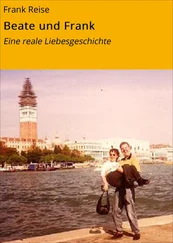“She’s an actress,” Jane said. “She’s playing a part. She practically ambushes Mr. Adam in the Blue Room, and then she attacks him on his only vulnerable front, which is archeology. It is too perfect.”
“I would not worry,” I said. “Homer has a perfectly good wife in Tarrytown, and only yesterday he was begging me to let him see her.”
“He won’t beg any more,” Jane predicted.
As the days went by, it turned out she was correct. Homer didn’t mention Mary Ellen again. He took The Frame to the Aztec Gardens in the Pan-American Union, and they spent hours deep under the stacks of the Library of Congress, and in the basement of the Archives Building, and in the gloomy reading rooms of the Pan-Hispanic Library. On the surface it all looked like good, wholesome, scholarly companionship, but this seemed hardly believable.
Whatever it was, I did not try to discourage it, for Homer visibly blossomed. His face no longer resembled that of a fresh-dug cadaver, and in a week he gained eight pounds, although when you distributed eight pounds up and down the length of his frame it did not seem very much.
While they spent their days in the pursuit of Aztec culture, that wasn’t the way they spent their evenings. They went out together every night, and each night Homer faithfully told me where they were going. It was always the Footlight Club, a little place on Connecticut Avenue where the steaks weren’t bad, the drinks cheap, and you could dance to a five-piece band. Of this I approved. I didn’t want him trotting The Frame around to any of the big places where they’d be conspicuous and get their names in the papers.
But one evening Homer came home more mussed than usual. Ordinarily we played a couple of games of gin before we turned in, but this night Homer played two hands as if he had been knocked on the head. Then he got up from the table and poured himself a drink. He turned to me and said, “Kathy is going back to Hollywood tomorrow.”
“That’s too bad,” I said. “I think she’s been good for you.”
He ran a hand through his hair, and I could see that he was trembling. This was not encouraging. I thought he was finished with the shakes. “Steve,” he said, “is it possible for a man to be in love with two women at the same time?”
“It has been done,” I said.
“I think I am in love with Kathy.”
When a man says he is in love with a woman there is nothing you can tell him, except to congratulate him, and it did not seem that Homer should be congratulated, considering the circumstances. I kept quiet.
“I suppose I love Mary Ellen, too,” he went on. “At least I ought to. She is my wife and until tonight I always thought I loved her very much. But I’m not sure that I love Mary Ellen the way I love Kathy.”
“No?”
“No. I think Mary Ellen and I got married because we were both a little lonesome. We were two strays wandering around in a world where everyone else was paired off. But with Kathy it is different. We were made for each other. It isn’t only archeology.”
“It is rarely archeology.”
Homer began to pace up and down. “It isn’t only archeology,” he repeated. “It is everything. We were made for each other.”
“Now what gave you that idea?”
“Kathy told me. We didn’t go to the Footlight Club tonight. We went up to Kathy’s room in her hotel.”
“Pardon me a moment,” I said. I went into the bathroom, shut the door, and banged my head against the wall. I came out again and asked Homer to tell me exactly how far things had gone, and what happened, in detail. He stammered, and cracked his knuckles, and got red in the face, and finally said that things had gone as far as they could go, but that it wasn’t his fault.
“Now, look, Homer,” I said, “you weren’t raped, were you?”
“Well, not exactly,” he said. “I’m not sure. Nothing like that ever happened to me before. One minute we were discussing the Toltecs, and the next minute we had all our clothes off.”
I said the fatuous thing that mothers tell their daughters and fathers their sons and husbands tell their wives: “Homer, this sounds like a mere infatuation.”
“Perhaps,” Homer said miserably. “I don’t know. I’m all mixed up.”
I shoved Homer into a chair, sat down opposite him, put my hands on his shoulders, and glared into his eyes like an optometrist. “Homer,” I said, “you are not going to like what I have to say, but I must tell it to you.”
“Go ahead.”
“Homer, you are one of those rare men chosen for real sacrifice to the world. You are a fine man, Homer, and certainly no one can blame you for your personal feelings. But it is your destiny to be sacrificed, like that Aztec god, what’s his name—”
“Tezcatlipoca,” Homer provided.
“No man has ever been sacrificed for so great a cause,” I continued. “Homer, first you must do your duty to mankind, and then remember your wife and little Eleanor. After that, you can think of The Frame—Kathy. I hardly need to tell you what the repercussions would be if your affair with Kathy became public.”
“You don’t have to tell me,” Homer said. “I know. That’s what I don’t understand. Kathy doesn’t seem to appreciate my position. She wanted me to run away with her.”
“Wanted you to run away! Where?”
“She didn’t say. Just away. It scared me. I told her I couldn’t do it—that I had my obligations, and she said to think it over, and that obviously we were destined to be together always, and that when I decided I should call her.”
“And you said?”
“I said I would think it over.”
I began to breathe again. “Thank goodness, Homer, you are being sensible. You have done a very noble thing, and it is a shame it will forever be hidden from history.”
That night I lay awake thinking. I really felt very solemn about it. Plenty of men would have told the world to take a flying leap at a galloping goose, and would have proceeded to do their own re-fertilization in their own way. But Homer was a very decent, public-spirited citizen. On the other hand I didn’t quite understand The Frame’s procedure. She was a smart girl—smart enough to know that she couldn’t possibly get away with eloping with Homer permanently. Or could she, say, if they got out of the country? The thought worried me.
I decided that the best way for Homer to keep his balance, and forget about The Frame, was to bring Mary Ellen to Washington. I was afraid that as soon as The Frame left, Homer would start pining away again, and sink into his melancholia.
In the morning I went into Homer’s room and found he was dressing. “Where are you going?” I asked.
“I’m seeing Kathy off. She’s catching the noon plane for Los Angeles.”
“Homer,” I said, “I don’t think that is wise. Why prolong the agony? You’ll just make it tough on yourself. You’ve made your decision, now stick with it.”
Homer sat down on the bed, his bare, lathlike legs almost touching his chin, and put his head in his hands. “I just wanted to see her this once more,” he said. “Just this one more time.”
I felt like saying to hell with it, and taking him down to the airport and putting him on the Coast plane, then I remembered Marge, and how anxious she was that something come of this business, and all the other women who were really sincerely troubled, and what a mess the world would be in if Homer ran off with The Frame. “It would be bad, Homer,” I said. “It would be especially bad since I’m arranging for Mary Ellen to come to Washington and stay here with you, at least until A.I. begins. See what I mean?”
“Yes,” he said, “I see.”
“You do want to see Mary Ellen, don’t you?”
Читать дальше












